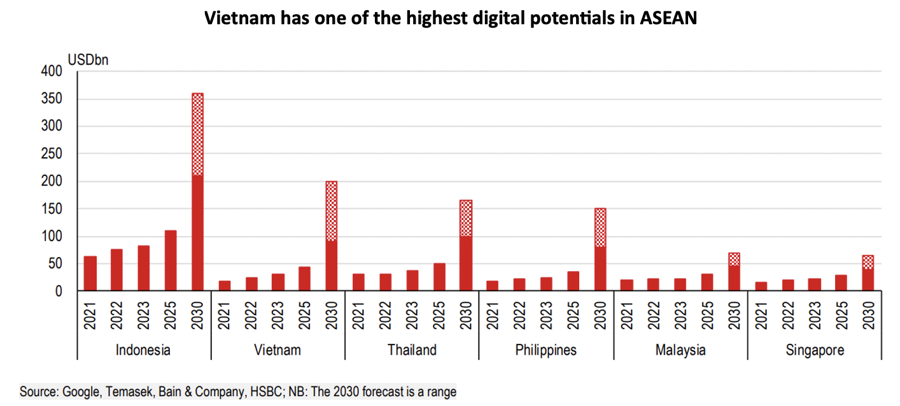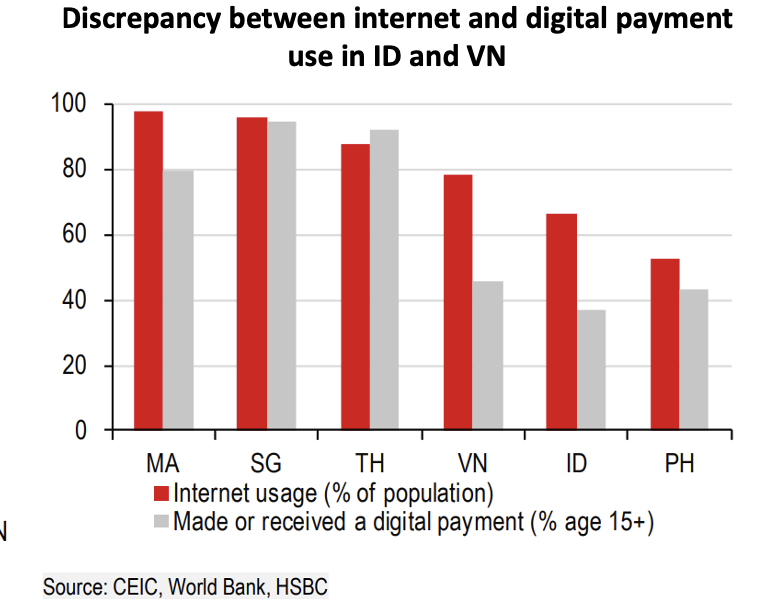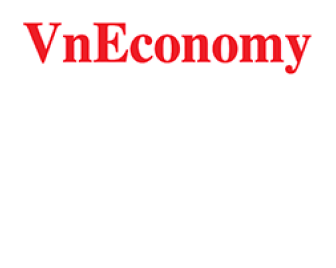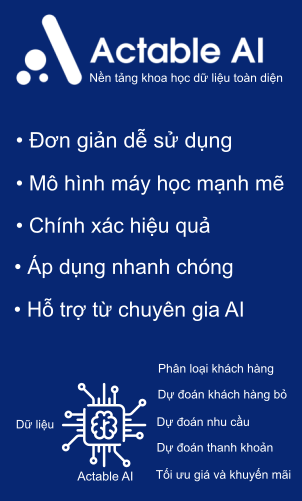Unlocking digital potential in Vietnam
Vietnam was the fastest-growing digital economy in ASEAN in 2023, with potential to become the second-largest by 2030, according to a report from HSBC.

A series of sizeable digital investments in ASEAN recently attracted attention, according to HSBC's report released on June 12. The region has become more tech-savvy in the past two decades, with Vietnam clearly standing out.
POTENTIAL OF VIETNAM
A flurry of digital-related investments has been taking place in Southeast Asia. Microsoft recently announced a number of investments in Indonesia, Malaysia and Thailand.
In Vietnam, Alibaba plans to construct a data center to accommodate rising digital demand. Clearly, with much focus on tapping into the rising digital economy in Vietnam, we take a closer look at some of the fundamentals at play, the HSBC report noted.
It quoted the e-Conomy SEA 2023 report as saying that Vietnam was the fastest-growing digital economy in ASEAN with impressive growth of 20 per cent. Measured by gross merchandise value (GMV), the country has the potential to become the second-largest digital market in the region by 2030, just after Indonesia. "We expect the expansion to be led by a rapidly developing e-commerce ecosystem, supported by a rising consumer base," the report added.
But it is not just the demographic tailwinds - Vietnam’s rapid rise in internet users also helps expand its digital market, the report remarked, explaining that almost 80 per cent of Vietnam’s population now use the internet, thanks to smartphone ownership more than doubling from a decade ago.
"With a population of over 100 million and a working age share of close to 70 per cent, we see the strong potential for Vietnam’s digital consumption," the report said. "Thanks to its large consumer base and rising number of internet users, it is not hard to understand the potential in its digital economy."

CHALLENGES EXIST
Despite the considerable growth in internet users, the application of digital technologies in certain areas has lagged behind, the report remarked and then quoted the World Bank’s 2021/22 data as noting that Vietnam lagged behind Singapore, Thailand and Malaysia in terms of using non-cash payment methods, although efforts to transition to digital payments have accelerated since then.

Meanwhile, according to the report, digital transformation has more room to run in areas beyond consumers. Trade, for example, is still relatively paper-based. This can risk imposing additional costs and delays, serving as a bottleneck on trade flows.
According to the report, although increasing use of the National Single Window, an online platform to process trade documents between firms and the government has led to material improvements in customs clearance efficiency, some hurdles remain. For example, the use of digital signatures remains limited, meaning some procedures still need to be handled by paper. As shown in Chart 5, alternative measures of digital integration within trade suggest further room to transition to paperless paperwork.
That said, part of the challenge stems from lagging digital literacy of the population, which has hindered the adoption of digital tools and constrained their effective use.
For example, digital literacy is relatively low among the rural population and in the agricultural sector. At the end of 2021, there were more than 27,000 agricultural cooperatives, but only 2,000 applied ‘high-tech’ and digital technology in production. Furthermore, these groups typically still depend more on traditional financing methods.
In terms of digital skills and talent, Vietnam lagged its peers, limiting the upside from digitalisation.
GOVERNMENT'S SUPPORT
According to HSBC's report, encouragingly, the government is well aware of these challenges, and has been playing an active role to facilitate the digital transformation of the economy.
In accordance with the National Digital Transformation Program through 2025 with a vision to 2030, Vietnam aims to build the three pillars of digital government, digital economy, and digital society.
The Government has correspondingly laid out a number of ambitious targets in recent years, including handling all administrative procedure applications online by 2030.
The national strategy opens up opportunities in a wide range of sectors.
While state-led initiatives to drive rural digitalisation have spurred progress in building a digital economy, it is important to note that private businesses can also play a role in accelerating the transition. For example, Grab conducted training workshops for over 800 cooperatives to help farmers learn about digitalisation and related business opportunities.
Another important consideration is how to secure the additional energy needed to fuel the momentum. A contributing factor is Decree 53, originally introduced in 2022, which requires firms to store data locally. Future proliferation in the volume of local data suggests more data centers being built, as was likely a partial factor in Alibaba’s decision to construct a data center locally. This highlights the linkage between growth in the digital economy and the availability of energy.
Power outages last May and June were estimated by the World Bank to have costed 0.3 per cent of GDP, particularly affecting manufacturing firms. As electricity demand looks set to expand further, expanding and improving Vietnam’s energy supply and infrastructure will become more important.
All in all, digitalisation brings both opportunities and challenges to Vietnam. In order to leverage its favourable demographics and achieve its digital ambitions, investments need to be channelled into not just new areas such as artificial intelligence (AI), but also foundational areas such as digital education and traditional infrastructure.
In fact, this drive is not just happening in Vietnam, but in ASEAN as a whole. According to a recent HSBC survey, more than 40 per cent of surveyed businesses operating in ASEAN rank digitalisation as a top priority.
Therefore, active dialogue and partnerships between the public and the private sector can help accelerate these developments to prepare for a more digitally fit population, the report stressed.



















